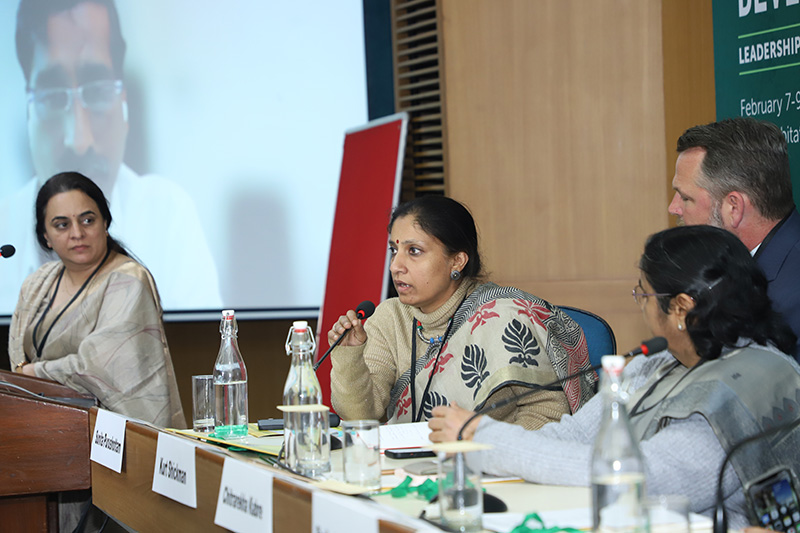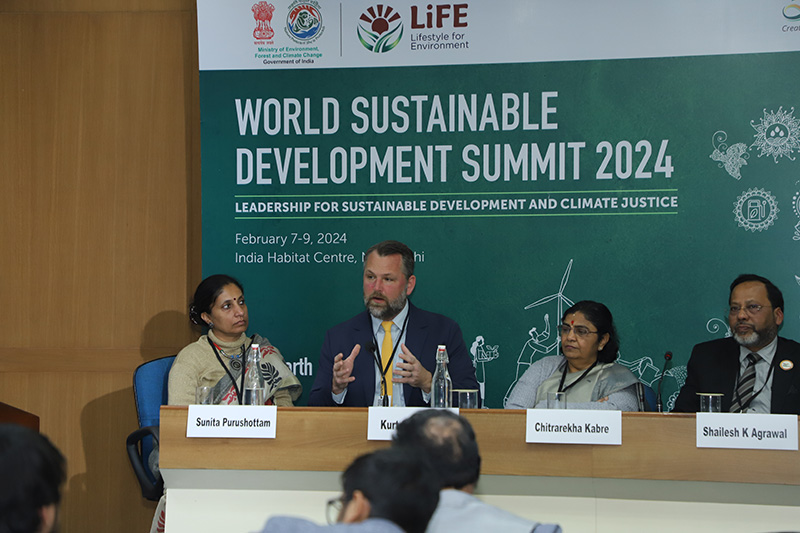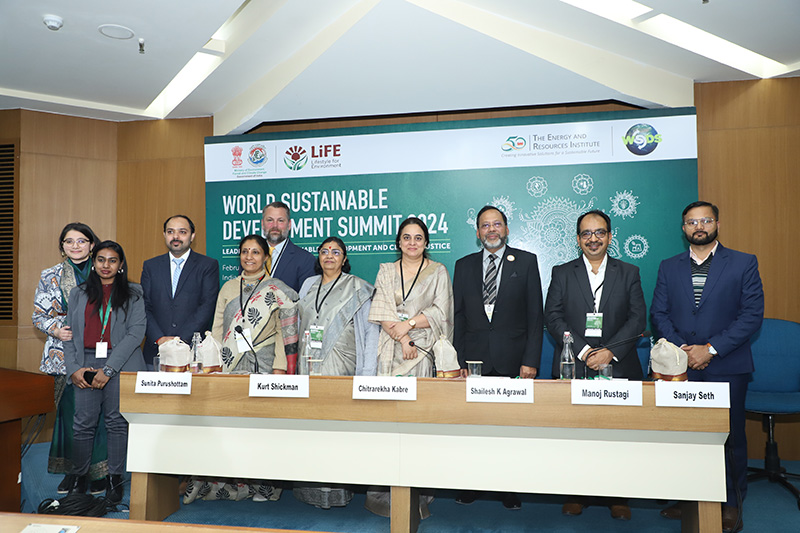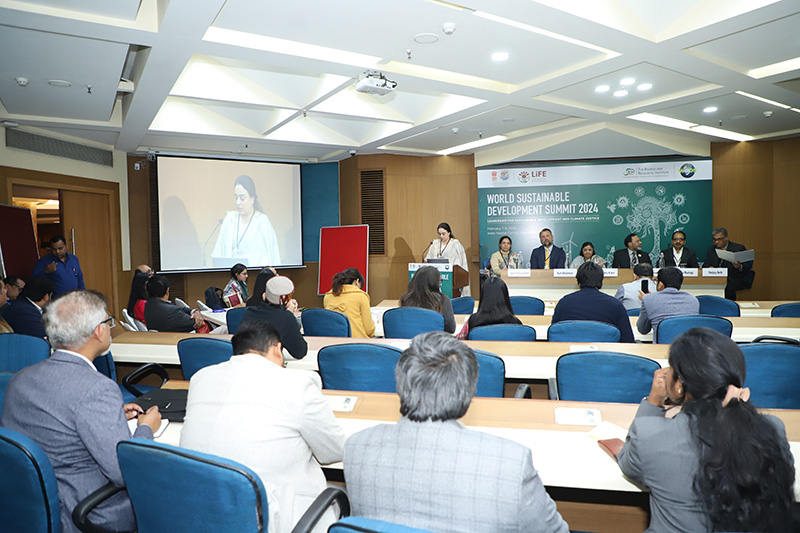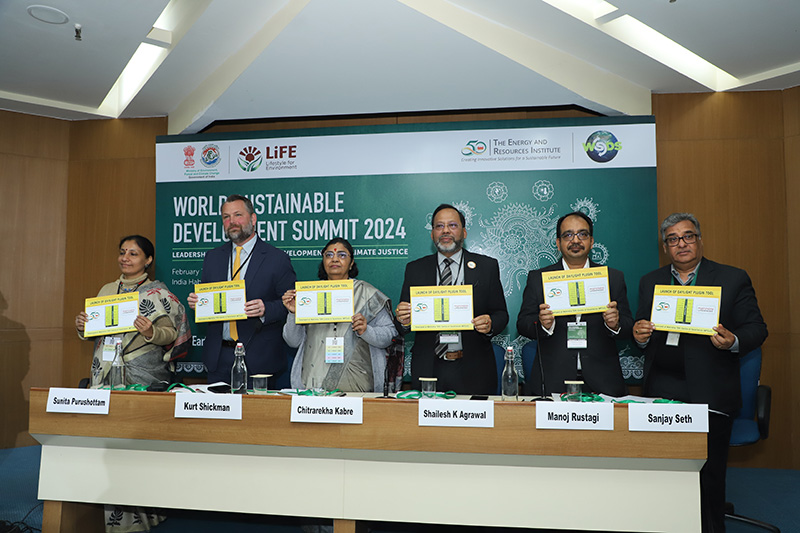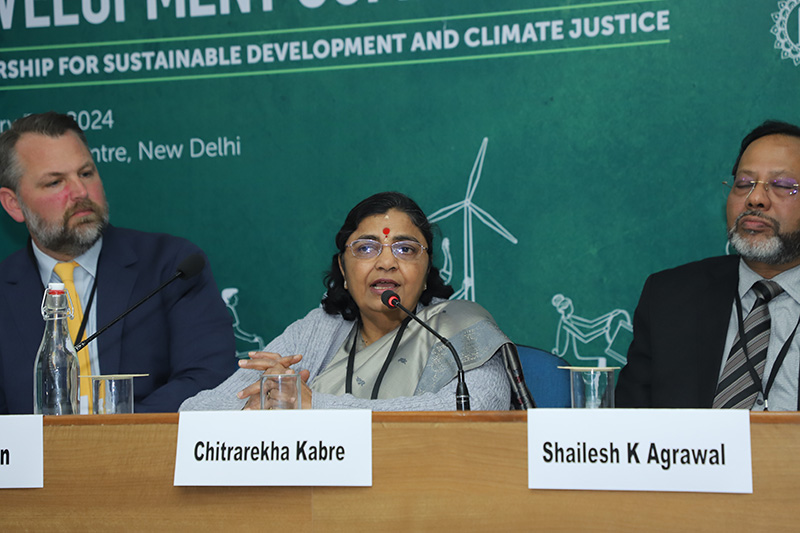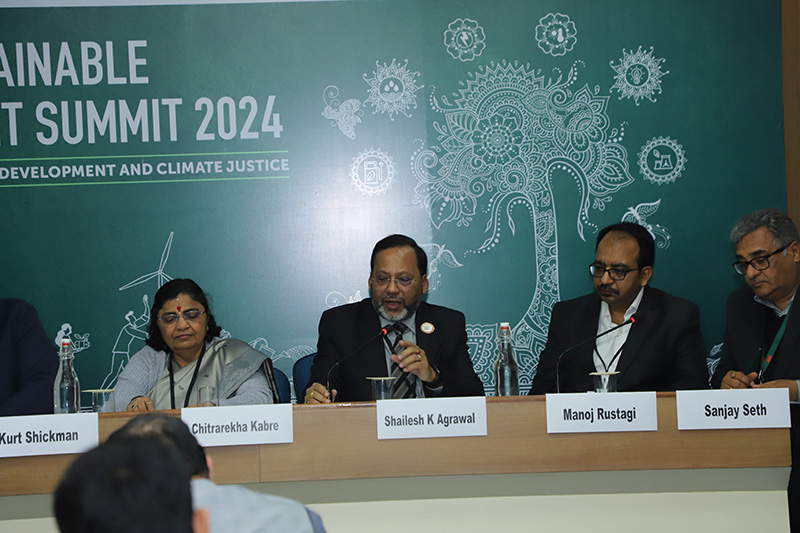The session was conducted as a part of the World Sustainable Development Summit 2024, the only leading sustainable development summit in the Global South. Held on February 8th, 2024, at the India Habitat Centre, it focused on exploring the potential of smart technologies and data analytics in managing energy and optimizing building performance, emphasizing the significance of human-centric design for improving occupant comfort. Additionally, discussions underscored the importance of performance testing in specialized building laboratories and the latest advancements in eco-friendly, energy-efficient building materials. Topics ranged from addressing knowledge gaps in sustainable building practices to translating technological advancements from the lab to practical implementation in organizations, drawing on insights from academia.
One of the session's key moments was the launch of the MTCoE Daylight Plugin Tool, enabling precise calculation of illuminance simulations based on India’s tropical climate. This includes both point-in-time and climate-based scenarios such as Daylight Autonomy (DA) and Useful Daylight Illuminance (UDI). The tool provides building practitioners with the ability to incorporate passive strategies into their designs and accurately evaluate illuminance levels, enhancing their overall precision in the process.
Panelists offered insightful perspectives on challenges related to carbon-neutral development in education and resource creation, sustainable building design, and the circular economy. The welcome address was given by Ms. Shabnam Bassi, Director of the Sustainable Habitat Division at TERI, and also moderated the session, alongside Mr. Sanjay Seth, Senior Director of the Sustainable Infrastructure Programme at TERI, and Vice President & Chief Executive Officer of the GRIHA Council. The dignitaries on the panel included:
- Mr. Viral Oza, Chief Marketing Officer at Mahindra Lifespace Developers Ltd. (MLDL), highlighted the growth of the construction sector, which is expected to contribute 13% to the GDP of India in 2023. He also emphasized that sustainable construction is paramount given that building and construction are responsible for nearly 34% of global energy consumption and 37% of global emissions.
- Dr. Shailesh Kumar Agrawal, Executive Director of the Building Materials and Technology Promotion Council (BMTPC), Ministry of Housing & Urban Affairs, Government of India, emphasized the government’s role in contributing to sustainable construction research under the Pradhan Mantri Awas Yojana (PMAY). These projects act as live laboratories. In India, there are more than a dozen entrepreneurs and start-ups exploring printing machines for construction.
- Mr. Manoj Kumar Rustagi, Chief Sustainability & Innovation Officer at JSW Cement Limited, reiterated that India’s cement industry is the most energy-efficient, with the CO2 intensity per tonne of cement manufacturing being 10% lower than the global average. He also pointed out that only 30% of natural resources and 70% of waste material from different industries are being used for cement manufacturing in the country.
- Dr. Kartik Kumar, Director of R & D at Saint Gobain Research India (SGRI) Pvt. Ltd, mentioned that the glazing industry is moving towards Net Zero Carbon by 2050, in line with the National agenda of Net Zero Carbon by 2070. As a manufacturer, Saint Gobain Research India controls Scope-1 and Scope-2 carbon emissions using cutting-edge technology and research.
- >Dr. Sunita Purushottam, Head of Sustainability at Mahindra Lifespace Developers Ltd. (MLDL), highlighted Mahindra Lifespace Developers' integration framework involving site selection, design, and massing with respect to climate-responsive design. Since 2014, Mahindra Lifespace Developers have been working on a 100% Green portfolio and have launched projects on net-zero energy and zero waste and zero water with green buildings.
- Prof. (Dr.) Chitrarekha Kabre, Department of Architecture, School of Planning and Architecture (SPA), New Delhi, discussed the individual's role in contributing to sustainable construction development. She stressed the importance of encouraging local materials, low-embodied materials, and the reuse of construction and demolition waste, advocating for a holistic approach to material usage.
- Mr. Kurt Shickman, Member, Advisor at the Cool Roof Rating Council, USA, highlighted the council's role in bringing together the industry, research institutions including national labs, civil society, to determine the benefits of products through data-driven understanding. He emphasized how this process helps in integrating cooling products into green building codes and standards with confidence.
To watch the full proceedings of the event, please use the following link:
